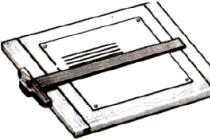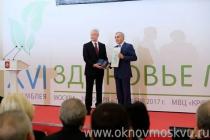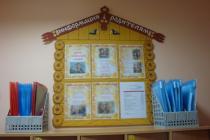Honorary Professor of the University of Buffalo (New York, USA), Doctor of Medical Sciences.
Chief freelance specialist pediatrician, chief freelance pediatric specialist nephrologist, chief physician of the Children's Clinical Hospital. Z.L. Bashlyaeva DZM, Director of the University Clinic of Pediatrics, SBEI HPE Russian National Research Medical University. I.I. Pirogov Ministry of Health of the Russian Federation, professor Department of Hospital Pediatrics No. 1, SBEI VPO RNIMU named after N.I. Pirogov Ministry of Health of the Russian Federation (part-time)
Biography
Osmanov Ismail Magomedovich, graduated from the pediatric faculty of the Dagestan State Medical Institute in 1983.
In 1989 after completing postgraduate studies at the Moscow Research Institute of Pediatrics and Pediatric Surgery of the Ministry of Health of the Russian Federation, he defended his thesis on the topic "Risk factors and principles of medical examination for oxalate nephropathies in children."
In 1991-1992, he completed an internship in pediatric nephrology and pediatrics at the Buffalo University Children's Hospital, New York, USA (according to the results of the All-Union competition)
In 1993-1996 performed his doctoral dissertation at the Department of Nephrology of the Moscow Research Institute of Pediatrics and Pediatric Surgery of the Ministry of Health of the Russian Federation
In 1996 he defended his doctoral dissertation on the topic "Clinical and pathogenetic features and treatment tactics for kidney damage in children in environmentally unfavorable regions."
1996-2003 Associate Professor, and then Professor of the Department of Children's Diseases No. 2 of the Russian State Medical University (GOU VPO RSMU).
From 2003 to 2012 - Deputy Director of the Moscow Research Institute of Pediatrics and Pediatric Surgery of the Ministry of Health and Social Development of Russia; Professor of the Department of Children's Diseases No. 2 of the State Educational Institution of Higher Professional Education of the Russian State Medical University concurrently (now SBEI HPE Russian National Research Medical University named after N.I. Pirogov of the Ministry of Health of the Russian Federation).
Since 2012 - chief physician of the Tushino Children's City Hospital (now the Children's City Clinical Hospital named after Z.A. Bashlyaeva of the Department of Health of Moscow); 2003 Professor of the Department of Children's Diseases No. 2 of the State Educational Institution of Higher Professional Education of the Russian State Medical University (now Pirogov Russian National Research Medical University, Ministry of Health of the Russian Federation).
Since 2012 – Chief Pediatric Nephrologist of the Moscow Department of Health;
From 2003 to 2012 -Deputy editor-in-chief of the journal - "Russian Bulletin of Perinatology and Pediatrics".
Currently a member of the editorial board of a number of leading scientific and practical journals of medical journals.
Chairman of the scientific committee of the annual All-Russian Congress "Modern technologies in pediatrics and pediatric surgery".
In 2010 he was awarded a commemorative medal "10 years of signing the Treaty on the Establishment of the Union State" ("For Impeccable Service").
In 2013, he was noted with gratitude from the mayor of Moscow, S.S. Sobyanin for many years of work in providing highly qualified medical care to residents of Moscow. Excellence in Public Health of the Russian Federation, awarded a number of certificates of honor.
In 2015 he was awarded the DZM Diploma "For a great personal contribution to the development of the capital's health care in 2015"
He is an Honorary Professor at the University of Buffalo, New York, USA.
Since 2016, he has been in charge of the University Clinic of Pediatrics, Russian National Research Medical University. N.I. Pirogov Ministry of Health of the Russian Federation
- Ismail Magomedovich, do you remember the first book you read on your own?
Yes, this is Volkov's The Wizard of the Emerald City, I remember well how I read it. I was in first grade then.
Did you read aloud a lot as a child?
Of course they did. At home, probably a little less, because my mother worked a lot, and I went to a kindergarten for round-the-clock stay, where a lot of attention was paid to reading. Later, already in my school years, I read a lot myself. What is read in childhood remains in the memory for life.
- Did any books or heroes influence your choice of profession?
No, most likely, my choice was influenced by the example of my mother, who worked as a nurse in a children's hospital all her life. I often visited her at work, saw the work of doctors, I think this influenced my choice of profession.
- Do you have time to read now?
Time, of course, is very short, but I try to devote every free minute to reading - for example, on the road or while waiting for something. I usually reread the classics.
Modern children devote a lot of time to electronic toys, various gadgets. And what, from your point of view, is the place in the world now occupied by a book?
Unfortunately, electronics is increasingly replacing books from the life of society, and especially children. I believe that this negatively affects not only the intellectual development, but also the physical condition of the kids.
- Do you see this as a doctor who has been professionally working with children for many years?
And as a person who notices changes in children's behavior. This can be seen in some trends in diseases, in borderline conditions that children have, in behavioral characteristics. Of course, this cannot but be alarming, although the evidence base on this issue must be collected separately.
And what can be done to make a child friends with a book? And who should do it: parents, educators, teachers?
In order to make a child friends with a book, it is necessary to introduce him to it earlier than to gadgets. If a child at the age of two knows which button on the computer to press in order for this or that picture to appear on the screen, it will be difficult to accustom him to a book already. The book is more complicated than a computer, but at the same time it is less illustrative, therefore, communication with it after the computer will no longer be interesting for a child. I am sure that children need to read books both in kindergarten and at school, but the leading role in introducing them to reading belongs to parents, because their example is primary. From early childhood, a child should be accompanied by books.
I can give an example of my children. I have two of them, both of them have already grown up and became children's doctors. They got a computer only after graduating from school, because they needed it for study and work. I must say that my children did not experience any difficulties in computer science lessons and did not understand technology worse because of this, but we managed to avoid unnecessary interest in non-intellectual games. And they love books, they read a lot.
- And how do parents entertain their children today in line to see a doctor? Do they read books?
Good question. Every year I see less and less parents in line in front of the doctor's office reading books to their children. But almost all children have an iPad or iPhone in their hands. Interestingly, parents most often sit next to their children and hold the same toys in their hands. The same is true in the departments where sick children lie. We cannot forbid parents to bring their computer equipment to the hospital, but at the same time, if parents ask, we try to explain the not very positive role of gadgets in the development of the child.
- Is there a library in the children's hospital?
We have always had a comprehensive library - it had children's books and medical literature. We have now transferred books on medicine to electronic form, in addition, we have connected to international sources of information on medical topics. And children's books were handed out to departments. Now they are in the game rooms, which are equipped with all our departments. There are enough books, but I say this with regret. We would be glad if there were not enough of them, but they are not in demand by children.
Does it happen that, when talking with children or parents, you advise them to re-read this or that work of art, to follow the fate of any literary hero?
Often. This usually happens when I see that the autonomic nervous system plays a big role in a child’s illness or, rather, a special condition: if he has formed an incorrect perception of the world around him or a disease complex has been created (in the child himself or in his parents), which worsens the quality of life (this is the so-called borderline condition, which can turn into a pathological one). Then I recommend turning to the book - reading the classics, good children's literature. Most often I recommend those books on which we grew up, modern children's editions I know worse.
The trouble with our world is that parents do not have enough time to communicate with their children. Everything happens on the run, moms and dads once slowly figure out the inner world of the child, give him clear advice and recommendations. In a neglected state, these problems are more difficult to solve. And most importantly, parents should be a bright, living example for the child, only then he will listen to their opinion.
One of the leading specialists of the Moscow Research Institute of Pediatrics and Pediatric Surgery, Honored Doctor of the Russian Federation, Professor Ismail Osmanov is widely known in medical circles both as the author of many scientific developments and as a practicing doctor who can find an individual approach to each of his little patients.On one of my first shifts in my life, a child was brought in with a severe form of pneumonia. I survived a terrible night, but by morning the little patient came to life. And then I realized that I had chosen the right profession.
* * *
There are practically no random people in pediatrics. People enter our profession only by vocation. The work of a pediatrician is hard and responsible. Young people who decide to devote their lives to pediatrics do not clearly understand how much knowledge, mental strength and everyday heroism it requires.
Anyone who is annoyed by the crying of a child, frightened by the need to help the baby in any bad weather, who is not able to earn the trust of the child and make him smile, will not be able to become a good doctor.
* * *
When I learned to drive a car, we were told every day in the courses: "Leaving the house and getting into the car, you become a potential criminal. But whether you become one or not depends only on your vigilance." It's the same with a pediatrician.
The pediatrician bears a huge responsibility, including criminal. Two years ago, one of my colleagues was convicted, although, in my opinion, the situation was quite confusing. The child was taken to the hospital with acute poisoning. Upon examination, the doctor assured that there was no cause for concern, and let the child go home, where he died.
The doctor claims that the child's parents themselves refused to be hospitalized. A medical history and a written refusal from the parents would help to sort it out. That is why I teach my students to write down the medical history first, as if they were writing it personally for the prosecutor. I have had this habit since my student days.
* * *
American doctors, due to their fantastic medical equipment, do not know how to intuitively feel patients. Our specialists, not being able to carry out instrumental examinations, are accustomed to trusting their own intuition more. Russian doctors have developed clinical thinking. They, like a good computer, themselves suggest which way the disease will develop.
In America, my friend was accused of incompetence and was awarded a hefty fine. In response, the clinic in which he worked conducted its own investigation and fully justified his actions. The fact is that there every doctor has insurance. And when applying for a job, based on letters of recommendation from a previous job, the employer takes responsibility for the employee. He pays insurance premiums, and in case of incorrect actions of the doctor, the insurance company extinguishes fines. But with a repeated mistake, insurance becomes more expensive, and the next time the doctor may be in a high-risk group, or even out of work.
The undoubted advantage of American healthcare, oddly enough, is that it is paid. American parents are more responsible for the health of their children. When working with our citizens, I increasingly encounter indifference. Too many people snub the doctor's advice they got for free. If the parents paid for the examination, they would carefully follow all the instructions.
* * *
I have one mother who approached the health of her child with all responsibility. Twice a year she comes to our institute from Magadan. Her 14-year-old son has a bladder dysfunction. And she knows almost everything about the disease. Regularly subscribes to medical journals. She brings tables with analyzes. They reflect all the results of semi-annual surveys, and the tables themselves look like a dissertation. She makes notes where and for what reason there was a deterioration in health or, on the contrary, everything stabilized.
If you listen to this mother, you may get the impression that she has a seriously ill child. Worst of all, the boy also thinks 24 hours a day that he is not all right with his health. It is good, of course, that the parent is so concerned about the condition of the child. But excessive concern also has a negative effect.
Basically, you don't know which is better. It is bad when adults remain indifferent to the doctor's words, but when they take an excessive part in the treatment process, it is also wrong.
* * *
The worst punishment for a pediatrician is when, through his fault, something happens to a child. Unfortunately, it is impossible to determine a good doctor purely by appearance. But there are certain characteristic features. For example, before approaching a baby, the doctor must wash his hands. Some pediatricians also take off their shoes, but most local doctors disregard this rule.
Pay attention to how the doctor touches your child and takes him in his arms. A pediatrician by vocation, from God, instantly establishes emotional contact with the baby, communicating with him with the help of a look, smiles, words.
* * *
The main scourge of our profession is network marketing. Officially, it is banned both in the West and in our country. Its mechanism is simple. Firms compile a database of doctors, then meet with them and offer "drugs for all diseases." As a rule, there is no such disease for which their "miracle drugs" did not cure. At best, such medications slightly increase immunological security. But at worst, they can negatively affect the function of the kidneys and liver. When a doctor offers to buy medicines from him, be careful. It is better if you do not follow the recommendations of such a specialist. For him, the commercial side of the matter may be more important than medical ethics.
* * *
One of my first patients was the twin brothers Sasha and Misha. After birth, they weighed less than three kilograms for two. The children spent the first three months of their lives in the hospital, and I can say with pride for them that at the time of discharge, each of them weighed more than three kilograms. After 5 years, I saw them again, my mother brought them specially to show me. The emotions that I experienced at that meeting are incomparable with any material reward.
SEVEN RULES OF DOCTOR OSMANOV
1. A pediatrician must love children more than their parents love them.
2. It takes a good pediatrician two or three minutes to win over a baby.
3. The medical history must be written in such a way that an investigator or prosecutor can easily understand it.
4. Equipment can fail a doctor, but experience never does.
5. A pediatrician is a doctor for a child and a teacher for his parents.
6. Not thinking about the disease is bad, but thinking about it around the clock is even worse.
7. Buy medicines from a pharmacy, not from a doctor.
10. A pediatrician must love children more than their parents love them.
12. A good pediatrician needs two or three minutes to win over a baby.
13. The medical history must be written in such a way that an investigator or prosecutor can easily understand it.
14. Equipment can fail a doctor, but experience never does.
15. A pediatrician is a doctor for a child and a teacher for his parents.
16. Not thinking about the disease is bad, but thinking about it around the clock is even worse.
17. Buy medicines from a pharmacy, not from a doctor.
25.03.2018 20:12
Text: Natalia Leskova
Recently, the chief physician of the Children's Clinical Hospital named after. PER. Bashlyaeva, Professor Ismail Osmanov received a high award from the hands of the capital's mayor Sergei Sobyanin - a diploma from the best children's hospital in the city.
This is the second such award in the past three years.
How in a short time the hospital managed to achieve such noticeable results, what distinguishes it from other children's hospitals and what are the plans for the future - our conversation.

- Ismail Magomedovich, is it true that the history of the hospital is closely connected with the name of Princess Diana?
- Indeed, there was such a fact in the history of the hospital. In June 1995, Princess Diana was here on a visit, visited several departments, including traumatology.
She communicated informally and very sincerely with children, parents and doctors and was very impressed with the severity of various injuries, especially those resulting from road accidents.
Then she uttered the phrase: “Why do your drivers dislike children so much?”, completely unaware that she herself would become a victim of a car accident in a few years ...
This was not a random visit. It was preceded by a large backlog of Russian-British cooperation, within the framework of which a special fund was created.
The hospital received humanitarian aid, nurses were trained by English specialists. The foundation was headed by Queen Mother Victoria, and from the Russian side, the general coordination was carried out by Professor N. B. Naigovzina, who at that time was the deputy chief physician for medical affairs.
And then, when the Queen Mother reached her 90th birthday, she handed over the reins of the fund to Princess Diana. This was the reason for her visit to our hospital.

The name of Princess Diana has left its mark on the history of the hospital. Cooperation with the foundation she created continues to this day.
- I know that the hospital continues to cooperate with the fund. Princess Diana to this day. What is it expressed in?
After the death of Princess Diana, cooperation with the Foundation was interrupted, and only in the mid-2000s, on my initiative, it was resumed, during the period when I worked as Deputy Director of the Federal Research Institute of Pediatrics and Pediatric Surgery of the Ministry of Health of the Russian Federation.
And then, when I was appointed chief physician of this hospital, the fund “returned” to these walls, which, in my opinion, looks very logical. And, as the British themselves say, "We have returned home."
Together with the Foundation's staff, headed by its President Harald Lipman, every year we hold a competition among doctors and select the three best and most deserving of them so that they can undergo an internship in one of the best hospitals in the world - Great Ormond street Hospital for children in London .

Doctors from all over Russia take part in the competitive selection. No patronage, no "blat".
This was Princess Diana's wish when she established this educational grant for Russian pediatric doctors. Everything happens completely legally and objectively.

Ismail Magomedovich Osmanov, chief physician of the "Children's Tushinskaya".
- Hospital them. PER. Bashlyaeva, whom everyone remembers as Children's Tushinskaya, is the youngest in Moscow.
And what else in your hospital can be characterized by the word "most"?
This is a question that can be given a concrete answer - this year the hospital was recognized as the best in Moscow for the second time in the last three years.
On November 30, at the Health of Moscow forum, the mayor of the city, Sergei Sobyanin, presented us with a diploma for the Best Medical Organization of 2017.
Of course, such a high assessment of our work by the Government and the Department of Health of the city of Moscow is not a reason for narcissism and relaxation for us.
On the contrary, we regard this as a great credit of trust, which greatly increases our responsibility to Muscovites and residents of other regions of Russia in the matter of preserving and strengthening the health of our children.

- Tell us about the work of the hospital departments. What problems do you have to face?
It is difficult to talk about the work of even one department of the hospital in one article. But I cannot fail to note that over the past 5-6 years a serious breakthrough has been made in the development of the hospital.
It can be said without exaggeration that this is a revolutionary breakthrough.
All this became possible thanks to the program of modernization of Moscow health care, the most modern equipment worth more than 700 million rubles was supplied.
As part of a large educational program of the Moscow City Health Department, many doctors and nurses have been trained in the world's leading clinics in Germany, Italy, Israel, South Korea, the USA, Great Britain, and the Czech Republic.
With the help of existing modern material and technical capabilities, new, most modern medical technologies have been introduced.
All this, along with the high professional level of our employees, has made it possible to achieve serious medical and economic results.
Thus, over the past five years, hospital traffic has increased by more than 1.5 times (now it is more than 140 thousand children a year), the average length of stay of patients has decreased by 2.5 times (4.2 days), and the average salary of doctors has increased. more than twice.
The structure of severe progressive diseases with good treatment results has significantly expanded.
Today we provide emergency, specialized and high-tech medical care in accordance with international standards.
We not only save and nurse, but also return to a normal quality life children born with extremely low body weight combined with severe congenital pathology.
Even 5-6 years ago, such results seemed unrealistic, and today's material, technical and intellectual potential allows us to confidently move forward, improve our work in accordance with modern trends in world medicine and the tasks set by the Moscow Government.

- Do you have any "brands", "highlights"?
Our strongest areas are neonatology, cardiology, traumatology, neurosurgery, uronephrology, resuscitation, infectious diseases, endocrinology, surgery, which are represented not just by separate units, but by entire complexes, which include several adjacent departments with a well-established continuity between them. .

In addition to the fact that departments work on the basis of your hospital, recently there has also been an opportunity for internships for schoolchildren.
Is it possible to trust such young and inexperienced people, in fact, children?
It is possible and necessary if we want to get a worthy replacement in the future.
The sooner we start preparing it, the better. Therefore, we pay great attention to the education of young people.
On the basis of the hospital, there are 17 different departments of RMAPE and RNIMU named after I.I. N. I. Pirogov, as well as two university clinics - pediatrics and pediatric surgery.
In close cooperation with the doctors of the hospital, a large number of Moscow and all-Russian events are held, joint scientific research is carried out.
On the basis of university clinics, we train future doctors for the hospital from among the best students, residents, interns and graduate students.
In addition, recently we have high school students who have chosen to study in specialized medical classes.
The main thing that they need in order to correctly determine their future profession is, of course, clinical practice. Therefore, this year we signed cooperation agreements with two schools on a joint educational program, under which the children have the opportunity not only to get acquainted with the hospital, learn the basics of the specialty of a pediatrician, but also have an internship in the hospital departments.
Such early professional orientation, supported by the Government of Moscow, will certainly contribute to the preparation of future highly qualified pediatric doctors who have made a conscious choice of their specialty.

- You also carry out many socially oriented projects. Tell us more about them.
In our work, we are not limited to providing medical care, but we consider it our duty to use our potential to the maximum in order to strengthen and preserve the health of children.
Every month on Saturdays, the hospital hosts Open Days, when everyone can come with their children and consult with many specialists, get the necessary recommendations for further treatment.
Our two-year practice shows that this format is very convenient and in demand by Muscovites.
And recently, we have been holding similar Open Days on weekends and holidays in the regions of Russia - from the Crimea to Kamchatka.
In 2-3 days we manage to consult and provide medical assistance to several hundred children. Our best doctors go on such business trips, including professors, candidates and doctors of medical sciences, heads of departments.
I myself go on such trips and personally advise children as the chief pediatric nephrologist of the Moscow City Health Department.
One of our last such business trips - to Kamchatka - was especially intense. People brought children hundreds of kilometers away, they were very worried that they would not make it in time, but we assured everyone that we would work until the last patient.
And indeed - 800 people watched, lingering almost until night. We send the most "heavy" to our hospital, many come and undergo treatment with us. Along the way, we also train local doctors, trying to establish close professional contact with them.
I want to especially note Oksana Fedorova's Hurry to Do Good Foundation, which provides us with support in such necessary and important regional events. Recently, with their support, we conducted a survey of children as part of the international children's film festival "Kinotavrik" in Sochi, as well as during the festival of teenagers in Saransk.
For active charitable activities, the hospital was awarded the Diploma of the laureate of the competition "Volunteers in Medicine 2017", established by the Regional Branch of the ONF "For Russia" in Moscow.
In addition, the hospital holds weekly Schools for parents of children suffering from severe chronic progressive diseases - diabetes mellitus, epilepsy, congenital heart defects, arterial hypertension, bronchial asthma, chronic kidney disease.
We also have a School for pregnant women and for mothers with premature babies. Within the framework of such Schools, parents have the opportunity to receive the most up-to-date and reliable information on a specific disease and ask all their questions regarding all areas of the life and development of the child.
All this is done completely free of charge and for everyone.

And what kind of children's holidays do you organize all the time? Do not they reproach you for the fact that the hospital is not a place for entertainment?
They do not reproach, but there is not always understanding, especially on the part of those who come to us from the regions.
You can often see surprise on people's faces. Hospital - and cheerful music, performances, clowns, contests and festivals ... Why all this?
And we believe that the hospital should not be associated in children with suffering and pain. Let them have a holiday here, and then they will recover faster. Therefore, we try to hold such events as often as possible so that children forget about their ailments.
Our biggest holiday is the annual Festival of Children's Health and Safety, which we hold on June 1 on International Children's Day, together with the Department of Health and the Ministry of Emergency Situations.
The holiday annually brings together several thousand little Muscovites and their parents. They have the opportunity to take part in various festive events - a concert of famous artists and children's creative groups; visit the pavilions of children's creativity, the young rescuer, etc.
All children, thanks to sponsorship, receive gifts, hot meals, sweets. Deputies, public figures, many famous Muscovites also take part in the holiday.
I am sure that such unification of the efforts of all concerned raises attention to the problems of safety and health of children.

- Ismail Magomedovich, you have enough work. Why do you need an extra headache? After all, you are not trying for certificates and diplomas ...
Of course, we are not working to receive an award. It is important for us that the award is well-deserved.
If we proclaim that our goal is the health of children, then we must follow this slogan and do something so that it does not remain beautiful words.
We don't want to splurge and make a good impression on anyone. This is not our task. We just work and strive to be the best. And we hopefully succeed.




















